29+ Sample Roommate Agreement Templates
-
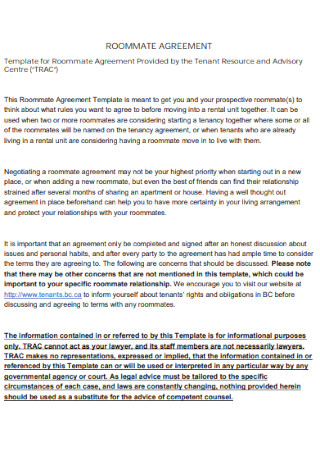
Sample Roommate Agreement Template
download now -
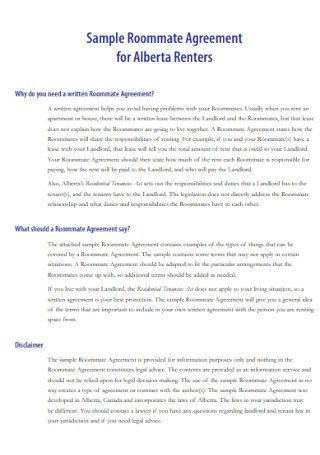
Sample Roommate Agreement for Renters
download now -
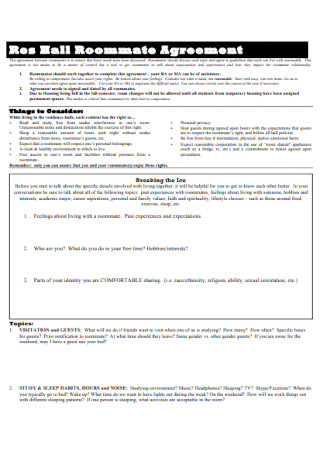
Hall Roommate Agreement Template
download now -
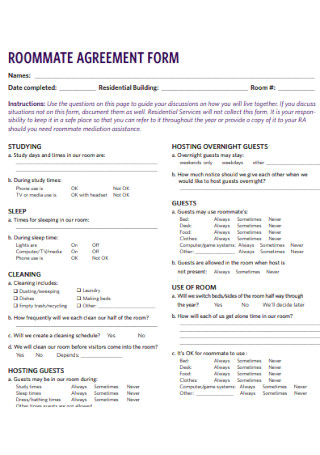
Roommate Agreement Form
download now -
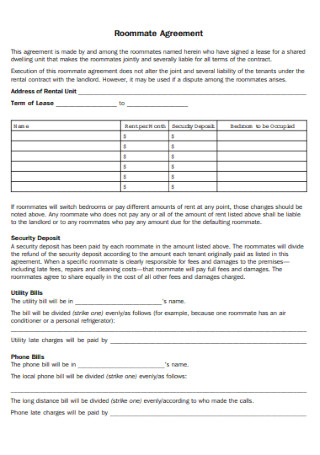
Basic Roommate Agreement Template
download now -
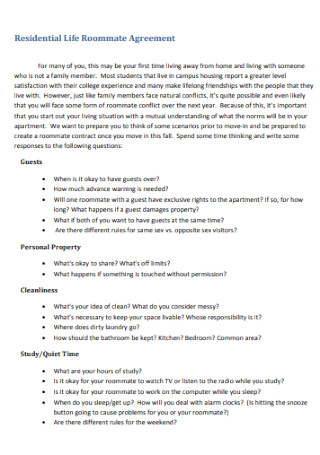
Residential Life Roommate Agreement
download now -
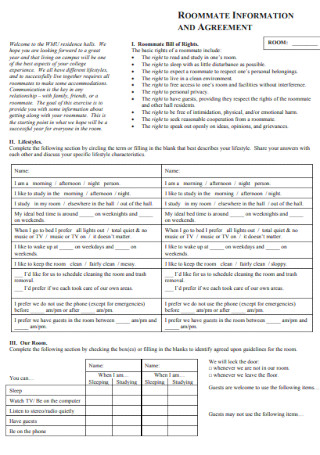
Roommate and Information Agreement
download now -
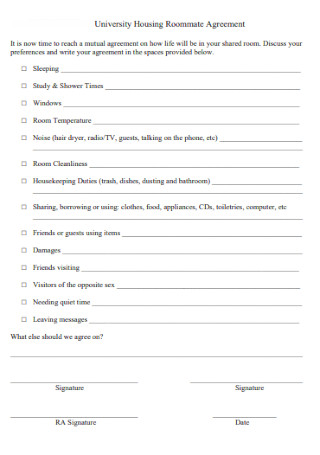
University Housing Roommate Agreement
download now -
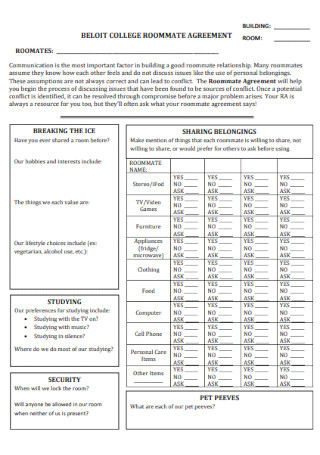
College Roommate Agreement
download now -
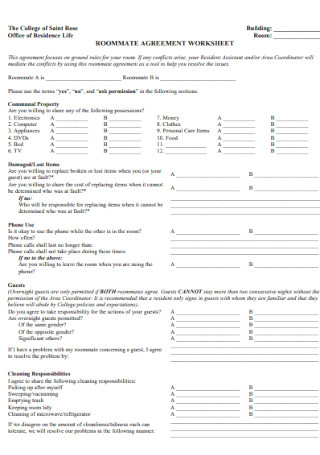
Roommate Agreement Worksheet
download now -
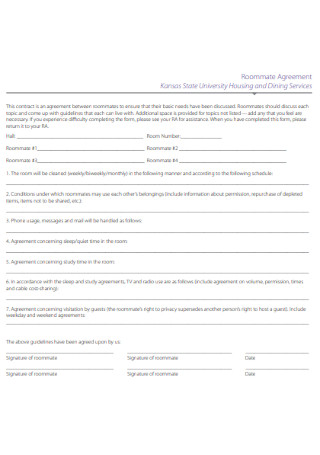
University Housing Roommate Agreement Template
download now -
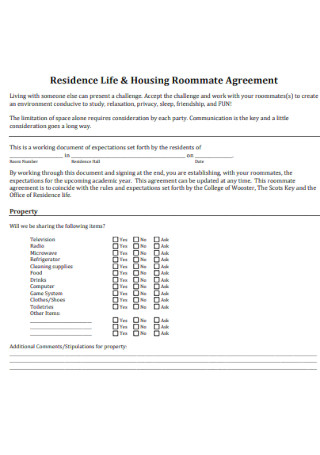
Housing Roommate Agreement
download now -
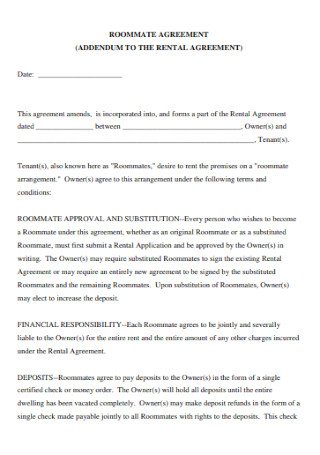
Rental Roommate Agreement
download now -
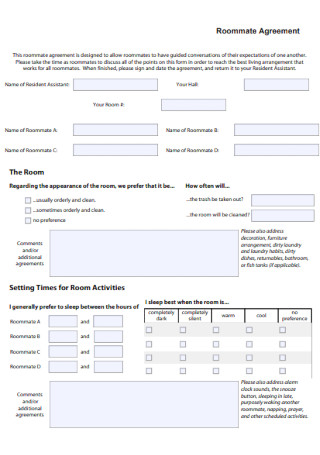
Simple Housing Roommate Agreement
download now -
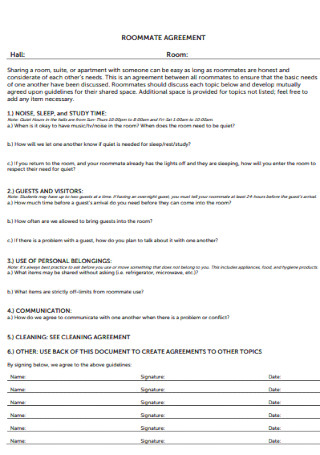
International College Roommate Agreement
download now -
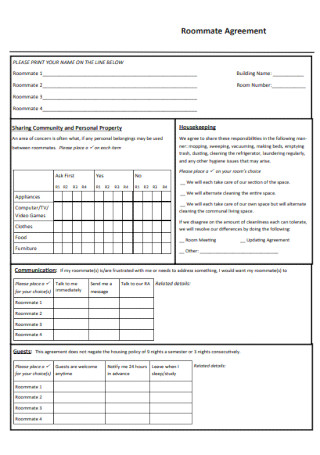
Roommate Agreement Format
download now -
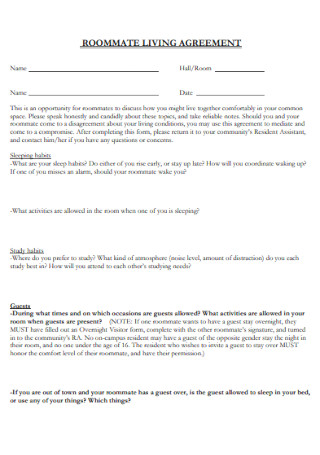
Roommate Living Agreement
download now -
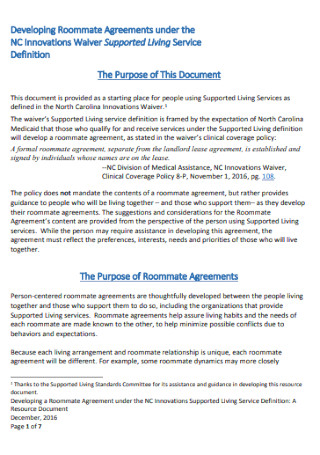
Roommate Developing Agreements
download now -
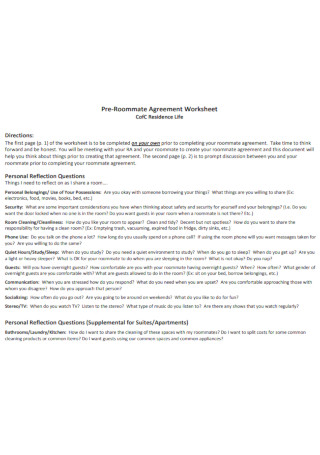
Pre-Roommate Agreement Worksheet
download now -
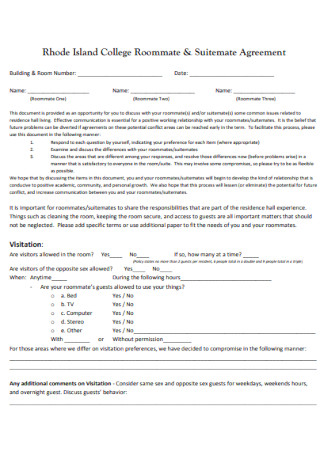
College Roommate and Suitemate Agreement
download now -
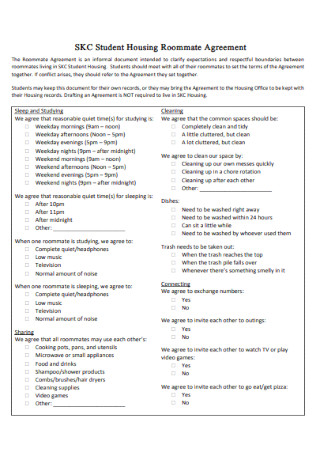
Student Housing Roommate Agreement
download now -
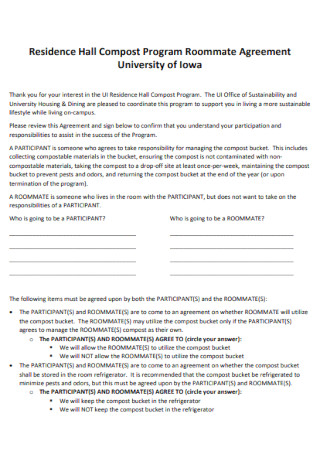
Program Roommate Agreement
download now -
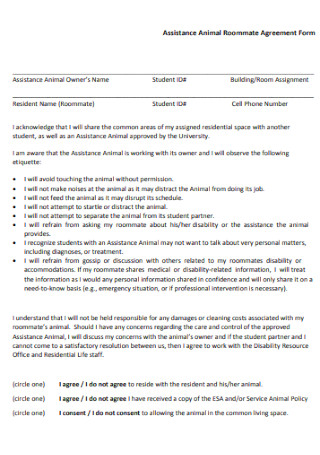
Assistance Animal Roommate Agreement
download now -
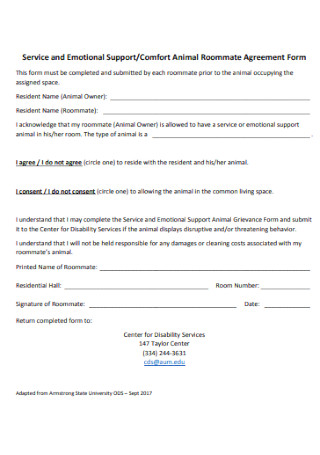
Roommate Service Agreement
download now -
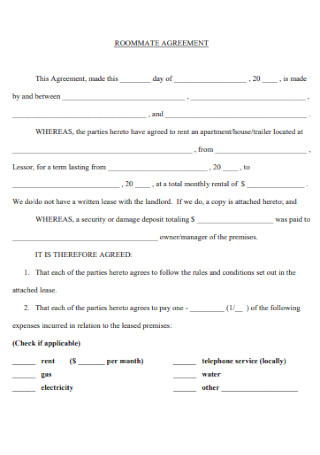
Formal Roommte Agreement Template
download now -
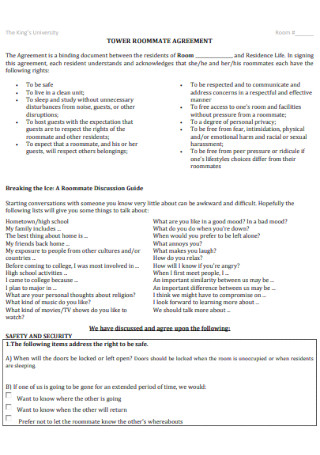
Tower Roommate Agreement
download now -
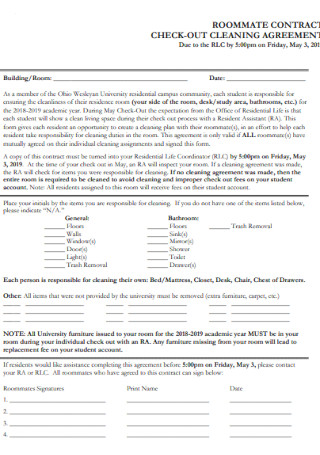
Roommate Cleaning Agreement
download now -
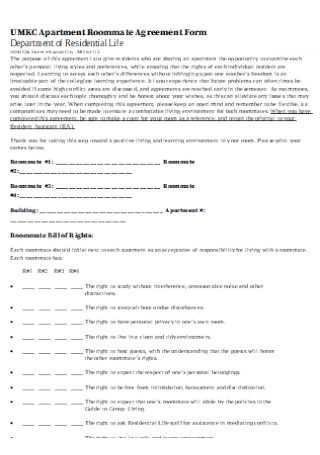
Apartment Roommate Agreement Form
download now -
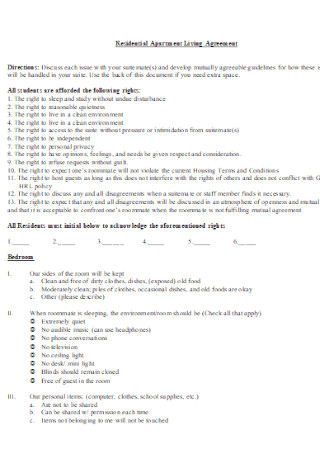
Residential Apartment Living Agreement
download now -
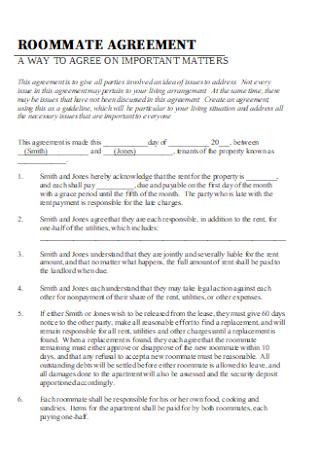
Printable Roommate Agreement Template
download now
FREE Roommate Agreement s to Download
29+ Sample Roommate Agreement Templates
What Is a Roommate Agreement?
The Resident Elements in a Roommate Agreement
How to Make a Roommate Agreement
FAQs
What benefits fall under making a roommate agreement?
How often should roommates have guests?
Is it necessary for a roommate agreement to be notarized?
What Is a Roommate Agreement?
What answer pops into your mind when asked about why you need a roommate? The answer often goes to sharing the rental fee or lease. And saving money comes off easily. Indeed, a room rental agreement deals with the tenant’s responsibilities to observe which the landlord requires. However, that legally binding contract with the property owner does not tackle the relationships between roommates. This reason is why a roommate agreement comes to play; therefore, it is the official form signed by people who decide to live together. More so, this document contains what flatmates expect from each other, the general rules, and the full outline of their roles and rights while sharing space.
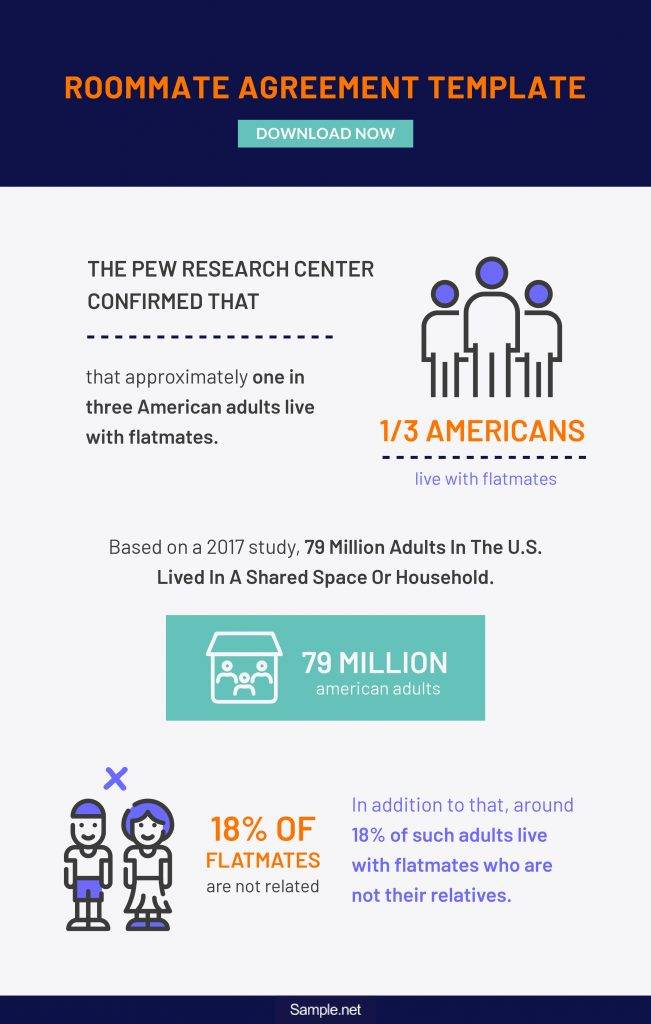
The Pew Research Center confirmed that approximately one in three American adults live with flatmates.
Based on a 2017 study, 79 million adults in the U.S. lived in a shared space or household.
In addition to that, around 18% of such adults live with flatmates who are not their relatives.
Roommate Agreements: Why Are They Important?
Having roomies sign the roommate contract or agreement is partly an etiquette; however, its importance often lies in ensuring that conflicts and issues get handled accordingly. Thanks to the responsibilities and expectations mentioned in the sheet, flatmates know these matters before even living together. A Boise State University research warned us about the typical problems faced by roommates. Examples include noise, stealing, privacy, bill disagreement, dirtiness, and lack of respect. If the agreement discusses and explains these topics, then roomies would not have such problems with each other.
The Resident Elements in a Roommate Agreement
While we now know how roommate agreements memorialize the different expectations between roomies, let us delve further into recognizing the resident factors found inside the document. Aside from knowing the form’s importance and purpose, it is essential to be more specific in identifying everything covered inside. Here are twelve basic elements found in a flatmate agreement:
How to Make a Roommate Agreement
As stated in Bustle.com, via Pew Research Center’s research survey, 79 million Americans, particularly adults, share a room. If having a flatmate is that common, imagine how many written roommate agreements are there. Moreover, not every roomie is a member of the family. According to the same study, 18% of those tenants are not related to their roommates. When you are about to move in with a roommate or perhaps, in great need of settling terms with your new roomie, be sure to come up with an agreement. To do that, follow these steps in creating a standard roommate agreement:
Step 1: Identify the Basic Information between Parties
Legally binding contracts and forms generally identify the parties involved first. With this, ask about your roomie’s full name, contact details, and other factors to know him or her. As a roommate, never forget to include your necessary information too. This identification formally starts the written agreement. With these details, one can easily recognize who becomes accountable or liable for particular circumstances, in the long run.
Step 2: Recognize the House Rules
After inputting the parties’ information, coming up with the house rules is next. Remember that in a mutual agreement, not only one of you should make the regulations. Every party must have a say regarding every rule to implement. From having guests, playing loud music, smoking, inviting pets, and more, there should be clear instructions regarding what is allowed or prohibited between you two. Also, everyone must already be introduced to the landlord’s rules ahead as that property owner gives the heads-up first. In a roommate agreement, focus more on the regulations not mentioned by the landlord since this is between roomies only.
Step 3: Note the Responsibilities
In the household, there are duties to observe. Responsibilities include paying the rental costs or bills and doing the chores. To handle this, list down every task or role to fulfill until everyone is aware of what to observe while living in the same area. And can you recall those elements in a flatmate agreement discussed before? Insert those in the form. Things would not get any more comfortable when you download our editable and printable templates since you only need to fill out the document. The rest of the parts in a template are prepared for you already.
Step 4: Insert the Dispute and Termination Clause
To end this document, ensure that the termination and dispute clause is already noted. With this, there will be clearer measures whenever someone decides to proceed with the termination of the contract. The same goes if a roommate fails to adhere to the corresponding terms in the agreement. Because of not following the rules, consequences must apply. Meanwhile, anyone who wishes to move out should inform early. That way, there is still time to look for a flatmate replacement. Reporting is excellent instead of immediately giving all the responsibilities to one party. Having the roommate to leave abruptly without even notifying through a letter is discouraged.
FAQs
What benefits fall under making a roommate agreement?
Expect many benefits in forming and using a flatmate agreement. A known benefit is how living with your roomie becomes less stressful. By coming up with arrangements and ways to resolve issues while residing in a room together, comfortable living happens. It is much better when everyone is aware of what to expect anyway for lesser disagreement.
How often should roommates have guests?
Having a visitor per day is okay. However, having those guests to sleep with the roommate should undergo an agreement already. To be fair, giving one to two overnight visitors per roommate once a week is good. But if both parties have no problem with it, then there is nothing to worry about.
Is it necessary for a roommate agreement to be notarized?
No, notarizing the roommate agreement or contract is unnecessary. Even without a witness while signing the form, it can still be considered a valid deal. But if you wish to have strong evidence on this matter, then signing with a witness in front is fine to prove that signatures are legitimate.
Even when a basic rental agreement informs you about a possible roommate, it still does not fully cover what rules, responsibilities, and relationships roommates would have while living in one room. Thankfully, a roommate agreement brings that opportunity to promote a pleasant experience while living with others in a house, apartment, condominium, or any room rental. Without such a document, imagine living with someone you keep on disagreeing with every single day. Tragic, isn’t it?
